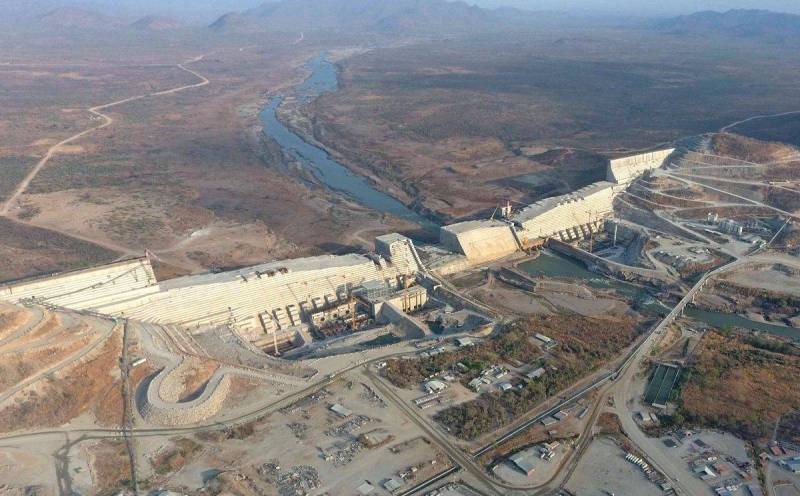Egypt tries to avoid war: Ethiopia shies away from negotiations on controversial dam
Hopes for negotiations on the water crisis over the controversial dam between Egypt, Sudan and Ethiopia are dwindling as Addis Ababa begins preparations for a new filling (third stage) of its giant reservoir, the powerful Renaissance hydropower plant on the Blue Nile, writes published by Al-Monitor from the USA on 20 October.
Abbas Sharaki, a professor of geology and water resources at Cairo University, expects Ethiopia to begin engineering work in November in order to fill the reservoir during the next rainy season (June to September). In February 2022, a concrete wall will be erected to raise the dam body another 20 meters.
Ethiopia now stores 13,5 billion cubic meters of water in the reservoir, and by the end of next rainy season there should already be 18,5 billion cubic meters of water. Then, annually, 10 billion cubic meters of water will be added to the reservoir until the volume of 74 billion cubic meters of water is reached.
Sharaki believes that unilateral actions by Ethiopia may push Egypt "to consider all possible options." In Egypt, the Renaissance hydroelectric power station is considered a serious threat to its water reserves, since the country is extremely dependent on the Nile.
Egypt, Sudan and Ethiopia are involved in a bitter dispute over the waterworks. Efforts to resolve the dispute have stalled, and there are fears that a military conflict will erupt in the region. In July of this year, Ethiopia announced the completion of the second stage of filling. Then, in September, the UN Security Council called on the three countries to resume negotiations under the auspices of the African Union. But efforts are in vain. Addis Ababa is set to start operating a hydroelectric plant without waiting for an agreement with its downstream neighbors, as 45% of Ethiopia's 116 million people have no access to electricity.
On October 12, Egyptian President Abdel Fattah al-Sisi said in Budapest that his country does not want water to be the cause of the conflict, but becomes a source of cooperation between the countries of the region. He added that Cairo is trying to avoid war, but will defend its share of the annual flow of the Nile River, urging the parties to sign a legally binding document.
Unlike Egypt, Sudan is not so categorical, it is ready to compromise with Ethiopia, as it is less concerned about the lack of water. Khartoum is seeking assurances that the operation of HPP Vozrozhdenie will be safe and will not affect its own dams. Moreover, he is ready to buy some of the electricity from Addis Ababa. This is what allows Ethiopians to claim that they are acting for the good of their neighbors, rather than harming them.
This could lead to the international community moving away from the more confrontational positions of Egypt. In this case, with the weakening of international support, it is difficult to imagine that Cairo will try to continue military operations against Addis Ababa.
- informed Corda Titiana from the Network for the Promotion of Social and political Research of the University of Milan.
Titiana believes that the government of Ethiopian Prime Minister Abiy Ahmed, which includes opposition parties, may make some concessions. For example, an interim agreement can be made in the form of a compromise.
But on October 10, South Sudanese President Salva Kiir Mayardit said at a joint press conference with the Egyptian President in Cairo that Abiy Ahmed had promised to start talks this month after the country's government was formed, but did not. He explained that the federal government of Ethiopia is now waging a war with the rebels in Tigraya (one of the nine regions of the country), therefore, is not yet in a position to start negotiations.
Ethiopia is playing for time ... The longer he (Abiy Ahmed - ed.) Postpones the negotiations, the more time he will have to launch the hydroelectric power station. This puts him in an even better position.
- clarified Cameron Hudson, senior researcher at the African Center of the Atlantic Council (an organization banned in Russia).

Information